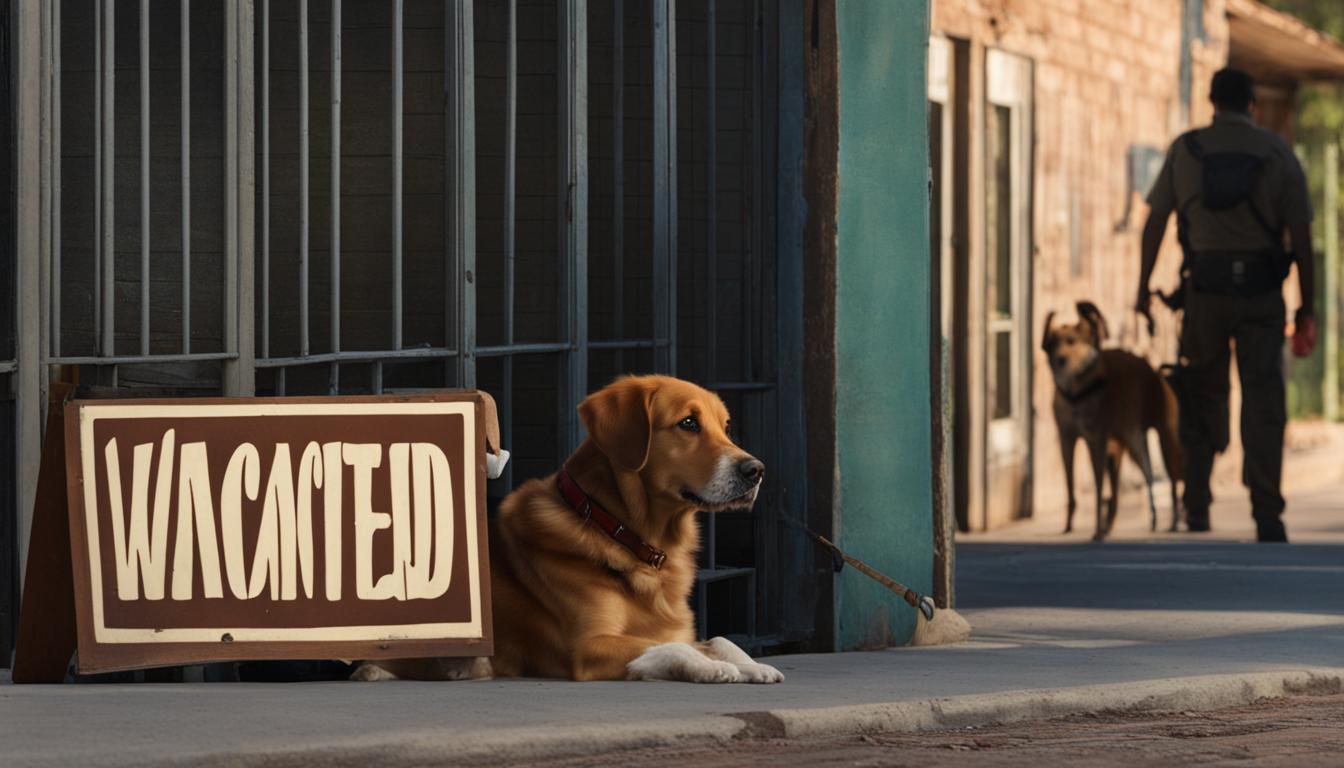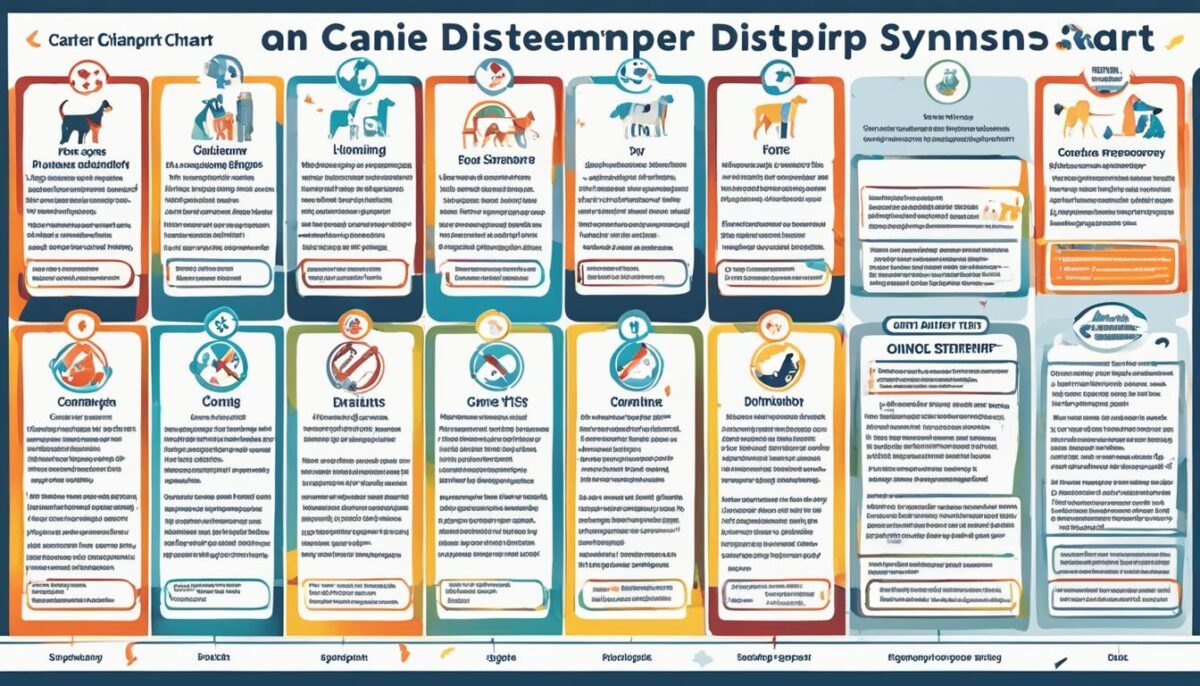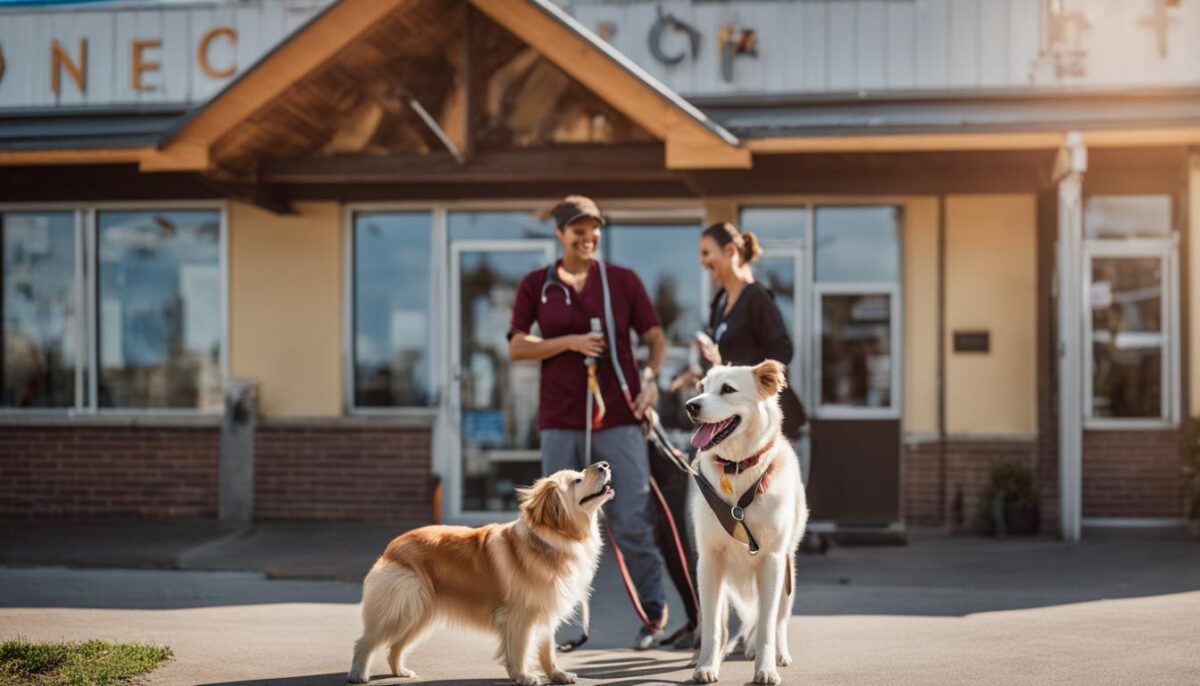As a pet owner, you do your best to keep your furry friend healthy. You might wonder if your dog can still get sick with diseases like distemper even after they have gotten their vaccinations. While shots help a lot, they don’t always keep every sickness away. Think of vaccinations as a shield; it’s strong, but sometimes things can still get through. It’s super important for your dog’s health to get all their shots. They help make sure if your dog does get sick, they won’t feel as bad and can bounce back faster. Staying on top of your pet’s health and following the vet’s schedule for shots is the best way to keep your dog safe from the canine virus.
Key Takeaways
- Vaccines are like a shield for your dog, but sometimes a virus can break through.
- Shots help your dog not get as sick and get better quicker if they do catch something.
- Keep your dog healthy by following the vet’s schedule for their shots.
- Even with shots, it’s good to watch your dog for any signs they aren’t feeling well.
- Making sure your dog’s shots are up to date is key to protecting them from diseases.
Understanding Canine Distemper and Vaccination
Let’s talk about a virus that can make dogs really sick. It’s called canine distemper and it’s a big deal for your furry friends. Just like you need shots to stay healthy, dogs do too. These shots help keep your pet feeling great!
What Is Canine Distemper?
Canine distemper is a tricky virus that can cause coughing, a runny nose, eye goop, fever, and can even make dogs act strange. It attacks dogs’ stomachs and brains, and it’s easy for them to catch it from other dogs. But here’s some good news: giving your dog their shots helps a lot!
Core Vaccines and Their Significance
Shots that are super important for dogs are called core vaccines. They’re like a superhero team that fights the worst doggy diseases, and yes, one of them tackles the mean canine distemper. Vets and animal groups like the American Animal Hospital Association think these shots are must-haves for all dogs.
- Canine distemper
- Parvovirus
- Hepatitis
- Rabies
Here are some of the core vaccines:
The Truth About Vaccine Effectiveness
So, do shots always stop dogs from getting sick? Well, they’re super good at it, but sometimes a dog can still get sick. Shots work by making dogs strong enough to fight off diseases. This way, even if they do get sick, it’s not as bad and they can get better faster. But remember, shots help all dogs by keeping more dogs healthy!
Can a Vaccinated Dog Get Distemper?
Hey there, did you know that even if your dog has been vaccinated, it could still get sick with distemper? It’s pretty rare, but it can happen, especially to little puppies who are less than four months old or those who haven’t been vaccinated at all. So, let’s talk about distemper risks, why they exist, and what you can do to help keep your furry friend safe and sound.
Imagine distemper as a tricky virus that can sneak past a dog’s defense system – that’s their immune system. Now, vaccines are like giving your dog a shield against this virus, but sometimes the shield isn’t perfect. If your dog doesn’t get all its shots right on time or there’s a mistake when they get the vaccine, the shield might be weaker. Also, if your dog hangs out with other dogs who have distemper, the risk of getting sick goes up.
You’ve got questions about this, right? Like wondering about canine health and if a vaccination query might be needed? It’s a big YES! Always ask your vet and make sure your dog’s vaccinations are up to date. This is a big part of taking care of your dog’s health. And remember, if your dog is feeling sick or acting strange, getting help from the vet right away is super important.
Here’s a handy table to help you remember the key things to prevent distemper in your dog:
| Preventive Measure | How It Helps |
|---|---|
| Complete Vaccination Schedule | Ensures your dog’s immune system is ready to fight the distemper virus. |
| Avoiding Sick Animals | Reduces the chances of your dog catching distemper from others. |
| Correct Vaccine Administration | Helps the vaccine work as it should, keeping your dog’s shield strong. |
Even with all these steps, sometimes things go wrong, and that’s when we need to show some distemper caution. Keeping our pups away from danger, being careful, and always checking in with the vet can make a big difference. So, let’s look out for our dogs and keep them healthy!
Recognizing the Signs of Distemper
When your furry friend isn’t acting like themselves, it might be more than just a bad day. Canine distemper is a serious condition that affects dogs, with signs that could be easy to miss if you’re not sure what to look for. So, let’s learn together about how to spot the symptoms of this illness.
Respiratory and Gastrointestinal Symptoms
If your dog is coughing, sneezing, or has a runny nose, these could be more than just signs of a common cold. They’re often early respiratory issues related to distemper symptoms. Along with these, you might notice that your pet doesn’t want to eat, or they might have diarrhea or vomiting, which are signs of gastrointestinal upset.
Nervous System Complications
Distemper can also cause your companion to act strangely due to nervous system effects. Watch for worrying signs like muscle twitches or seizures. These can be scary for both you and your pup, but knowing what they are could help you act fast in getting help.
Physical Changes and Discharges
Sometimes, your pup might get a fever or seem really tired. You might also see their eyes or nose giving off a weird discharge. If your dog’s normally soft footpads become unusually hard, that’s another hint that they might be dealing with canine illness signs.
| System Affected | Symptoms to Notice | What to Do |
|---|---|---|
| Respiratory | Coughing, sneezing, nasal discharge | Keep your dog warm and away from drafts; consult your vet |
| Gastrointestinal | Loss of appetite, vomiting, diarrhea | Provide easy-to-digest food and plenty of water; talk to your vet |
| Nervous | Muscle twitches, seizures | Seek immediate veterinary care to manage symptoms |
| General Physical | Fever, lethargy, hardened footpads | Monitor their temperature and comfort; schedule a vet visit |
Measures to Take Post-Vaccination
After your dog gets a vaccine, you want to do everything right to keep them healthy. Here’s what you can do to make sure they stay happy and well:
Regular Vet Checkups
Just like you go to the doctor for a checkup, your dog needs to see the vet too, especially after getting their shots. The vet can make sure your puppy is growing up strong and not feeling sick. Remember, post-vaccination care starts with these checkups!
Keeping Up with the Vaccination Schedule
Lots of shots might sound scary, but they help your dog fight off big, bad germs. Make sure to mark your calendar for every vaccine schedule the vet tells you about. When you follow the plan, you’re giving your dog a shield to stay safe and sound.
Isolation and Care for Infected Dogs
If by chance your dog gets sick, it’s super important to give them their own space away from other pets. This is called isolation. You also have to love and take extra care of them. Sick pups need plenty of rest, medicine, and your kindness to get better. If you keep your sick dog away from others, you’re helping stop the germs from spreading.
Preventing Canine Distemper Beyond Vaccination
Getting shots for your dog is super important, but there’s more you can do to keep your furry friend safe from canine distemper. You’ve got to think about pet safety and some smart health practices. Remember, just like you put on your coat to stay warm, your pet needs you to help them stay healthy too!
Imagine your dog could talk. They’d tell you they don’t want to get sick with distemper. So here’s an easy-to-follow list to keep them smiling:
- Chat with your vet about distemper. They’re like a doctor for pets and know lots of stuff that can help.
- Keep track of your pet’s shots. A calendar can help you remember when it’s time for the next one.
- If another dog is feeling yucky, make sure they don’t hang out with yours. It’s kind of like when your friend has a cold, and you don’t want to catch it.
- Clean your dog’s hangout spots so they have a nice, clean place to sleep and play.
- Feed your dog good food that helps them grow strong, and play fetch or go for walks so they get lots of exercises.
Doing these things are great distemper precautions. They’re like stepping stones over a puddle – they help you and your dog avoid getting wet with sickness.
Don’t forget, your dog loves treats, belly rubs, and most of all, feeling good. So, let’s beat this distemper thing together with some smart moves and lots of care. High paw for canine distemper prevention!
Real Stories: Recovery and Management
The fight against canine distemper isn’t over even after the hard part is done. For some dogs, the recovery phase is just as critical as the initial treatment. By examining real-life cases of canine distemper recovery, you can draw hope and learn about long-term pet care. Getting expert veterinary insight helps manage any lingering effects and helps your furry friends live happy, healthy lives even after this tough illness.
Case Studies of Canine Distemper Survivors
Learning from the stories of other dogs who have fought off canine distemper gives us all a little bit of strength. These tales not only highlight their resilience but also emphasize the importance of ongoing medical attention and a caring home environment.
Long-term Care for Distemper-affected Dogs
After surviving distemper, some dogs might need extra love and care for the rest of their lives. Whether it’s dealing with shivers or finding it hard to walk straight, these heroes show what’s possible with a fighting spirit and some help from their human friends.
Veterinary Advice on Distemper Management
Veterinarians are the unsung heroes in the journey of distemper recovery. Their knowledge and guidance are crucial in helping your dog bounce back and ensuring they stay on track with their vaccination schedules.
| Care Aspect | Short-term Needs | Long-term Needs |
|---|---|---|
| Medical | Antibiotics, Hydration | Regular Check-ups |
| Nutritional | High-Calorie Diet | Consistent, Balanced Diet |
| Physical | Assistance with Mobility | Physical Therapy |
| Emotional | Reassurance, Company | Ongoing Comfort and Love |
Conclusion
As we wrap up, it’s key to remember that your dog’s health is in your hands. Even if your furry pal has been vaccinated, the chance of getting distemper is still there. That’s why being watchful about any signs of sickness is super important. Make sure to keep up with the vet visits and get all the shots as planned. This will help keep your dog in tip-top shape and less likely to catch distemper.
You’ve got a big role to play in keeping your dog safe. A big part of that is making sure they stay away from sick dogs and that you give them healthy food to eat. Plus, their home should be clean and cozy. These steps make a strong shield against distemper.
In short, caring for your dog means doing lots of little things that add up. Vet visits, shots on time, and keeping your pet happy and well are all ways to keep them bouncing and healthy. Remember, your love and attention are just what the doctor ordered to help guard against illnesses like distemper.
FAQ
What Is Canine Distemper?
Canine distemper is a highly contagious viral disease that affects a dog’s respiratory, gastrointestinal, and nervous systems, as well as other body functions. This serious condition is caused by the canine distemper virus and can be fatal, especially in puppies and unvaccinated dogs.
How significant are core vaccines for dogs?
Core vaccines are essential for your pet’s health and are recommended for all dogs regardless of their living situation. These vaccines protect against diseases that are widespread, have serious health implications, and are often easily transmissible, including canine distemper.
Can a dog still get distemper if vaccinated?
Yes, while vaccines are designed to provide immunity, no vaccine offers 100% protection. A vaccinated dog can still contract distemper, particularly if the vaccination schedule is not strictly followed or if the dog has a weakened immune system.
What are common symptoms of distemper in dogs?
Distemper symptoms in dogs can include a variety of signs, such as coughing, sneezing, nasal discharge, fever, lethargy, appetite loss, diarrhea, vomiting, and in severe cases, seizures, muscle twitches, and paralysis.
Why is it important to stick to the recommended vaccination schedule?
Adhering to the vaccination schedule set by your veterinarian is vital to ensure your dog has the best possible protection against diseases like canine distemper. Specific timings and booster shots are critical to maintain a stable level of immunity over your dog’s life.
How can canine distemper be prevented beyond vaccination?
In addition to vaccination, preventing canine distemper involves minimizing exposure to infected animals, keeping your dog’s living area clean, providing a balanced diet, regular exercise, and consulting with your vet to stay informed about the disease and its prevention.
What should I do if I suspect my dog has contracted distemper?
If you suspect your dog has contracted distemper, it’s important to seek immediate veterinary care. Additionally, isolate your dog from other pets to prevent spreading the virus, and follow your vet’s advice regarding care and treatment.
Can there be long-term effects after recovering from canine distemper?
Dogs that recover from canine distemper may have long-term effects, especially if the nervous system was affected. These can include persistent tremors or even paralysis. Long-term care may be necessary to manage these conditions.
How can regular vet checkups contribute to my dog’s health post-vaccination?
Regular vet checkups are essential to monitor your dog’s overall health, ensure vaccines are up to date, and catch any early signs of illness. Vets can also provide tailored advice for maintaining your dog’s health based on their specific needs.
What is the role of veterinarians in managing distemper?
Veterinarians play a crucial role in diagnosing, treating, and managing canine distemper. They provide vaccinations, recommend treatment plans, offer advice for home care, and can help with setting up an appropriate vaccination schedule for your pet.


